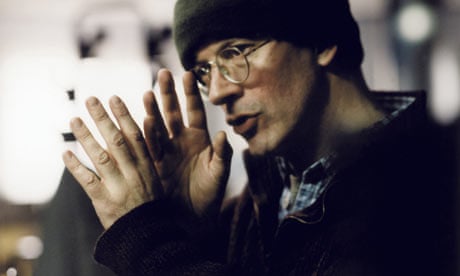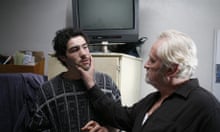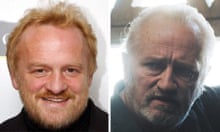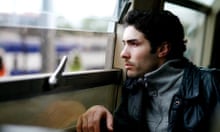In Cannes last year, Jacques Audiard's Un Prophète did not win the Palme d'Or. Instead, that prize went to Michael Haneke's The White Ribbon – and some observers murmured that it was because the Audiard picture was too gripping, too entertaining, too much like an old-fashioned prison drama. It's a dilemma that might amuse Audiard, the fond son of a seasoned screenwriter who wrote some of the big French movies of the 1950s. But Un Prophète marks 15 years in Jacques Audiard's career as a director, and if he is not exactly established yet, or consistently in character, it's about time we saw fit to place him in the company of such distinguished French directors as Julien Duvivier, Jacques Becker and Jean-Pierre Melville.
His first film, in 1994, was Regarde les Hommes Tomber, and it won a César for best first film. It was a fairly conventional noir story – the sort of thing you might expect from someone raised as a dinner-table screenwriter – with good performances from Jean-Louis Trintignant and Mathieu Kassovitz. It was a cunning tale of two stories that gradually tied themselves into a pretty knot.
Two years later, Audiard surprised everyone with his next film. In A Self-Made Hero, Kassovitz plays a dreamy would-be writer, unfit for war service, who gently writes himself into the history of the French Resistance. It is authentic, if unexpected comedy, with Trintignant again as the much older man looking back on the audacious escapade. Comedies about the Resistance are never going to be common in France, and there is a calm to the humour here that seems more intellectually interesting than anything else Audiard has done. So A Self-Made Hero is not only his best film – it is a signal as to how he might proceed.
There was a gap of five years then before Read My Lips. Emmanuelle Devos is an office worker who is deaf. She hates her job, she is enclosed – as much by her personality as her impairment. She needs help, so she hires an assistant – an ex-con, played by Vincent Cassel with very little attempt to hide his past. I'm not sure the association is ever fully plausible, but it uncovers the damaged psyches of both parties. The plotting is elaborate and cunning, and it is a film in which you have to hear what people "say" and still read their lips – even if it may be a failure ultimately.
The danger in Audiard's choices was only accentuated by The Beat that My Heart Skipped – a remake of James Toback's Fingers, in which Harvey Keitel played a minor Manhattan thug who also wants to be a concert pianist. Romain Duris plays the lead for Audiard and gives him this advantage: he has a charm and an energy that Keitel never matched. Toback likes and admires the French remake, though he has problems with its ending especially: in Audiard's film the central character is never as desperate or dangerous as in Fingers, and where the American film leaves its character in psychic hell, in the French version he has discovered a healing relationship in life that sets cosiness and incredulity at odds.
There is a sentimental streak in Audiard, I think, and a feeling that loose ends in a screenplay need to be tied together. Yet Audiard's most interesting vision may lead to a determination to let untidiness prevail. Fingers was never anywhere near a commercial success, but it has become a cult success largely because its extremism frightens and astonishes. The Beat that My Heart Skipped was a tidy success wherever it played, and Audiard knew exactly when and how to make it sexy, violent or comic. But Fingers was a Freudian fairytale, a textbook study in infantilism, whereas Audiard seems reassured by the idea of good entertainment. There is a minor feeling against Un Prophète that for all its suspense and comradeship – not to mention its violence – it is a picture that wants to make us feel good.
Audiences will decide and I hope they'll enter into an Audiard retrospective. He is a large talent, probably in his prime. It is up to him how challenging he wants to be, or how comfortable.




